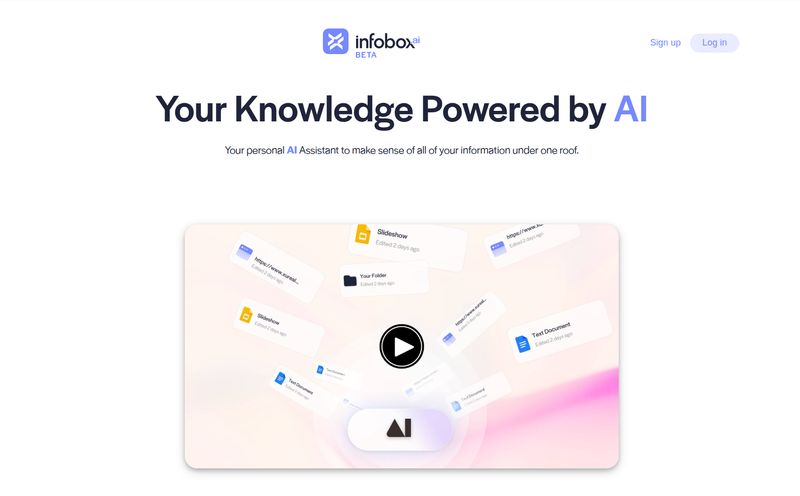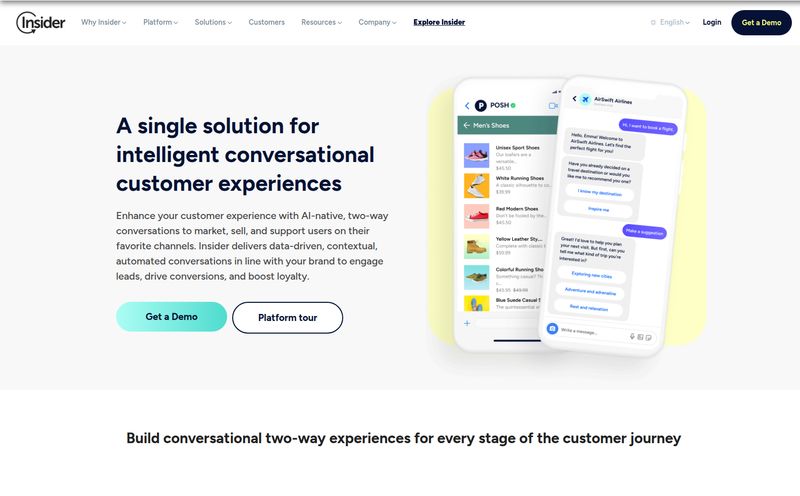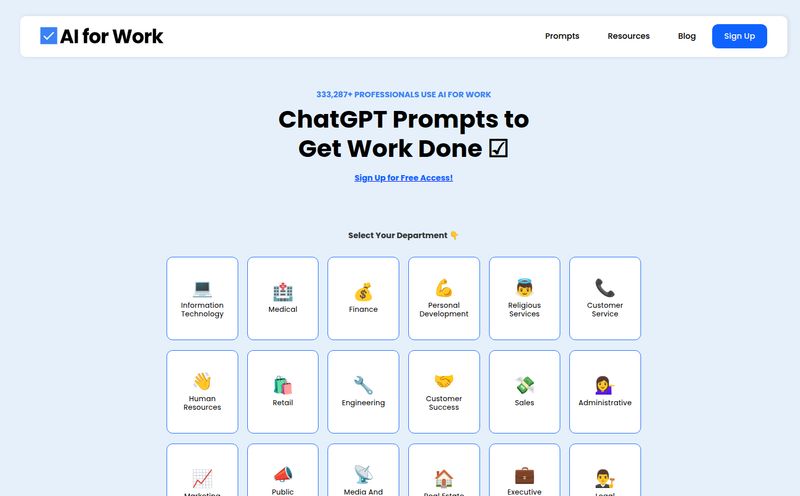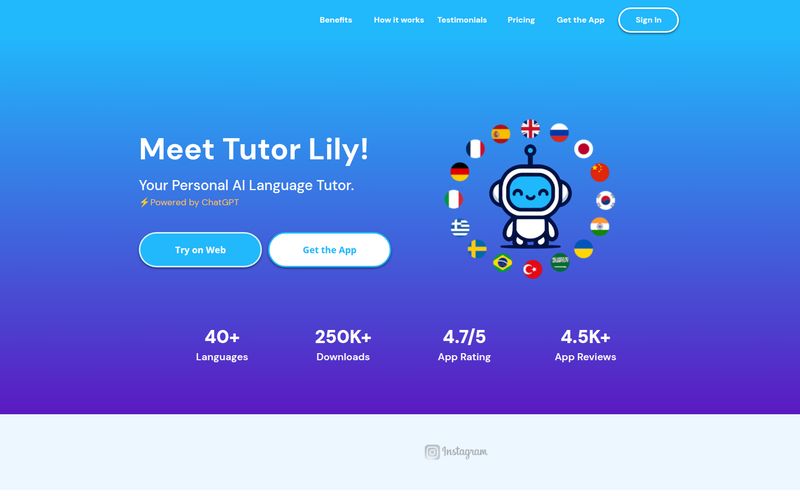If you're in B2B customer support, your screen probably looks like a chaotic mosaic of open tabs. You've got your email client, Slack or Microsoft Teams, a ticketing system that feels like it was designed in 1998, a separate knowledge base editor, and probably a spreadsheet to track... something. The context switching alone is enough to burn you out before lunch.
I've been in the trenches of traffic generation and digital operations for years, and I've seen teams drown in this exact scenario. We're constantly sold the dream of a “single pane of glass,” but it rarely pans out. It's usually just another pane to add to our already fractured window.
So, when I started seeing the name Pylon pop up, I was skeptical. Another all-in-one platform? Groundbreaking. But then I looked closer, and I’ve gotta say, what I found was genuinely interesting. They seem to understand that B2B support isn't just B2C support with bigger invoices. It’s a completely different beast. So, grab your coffee, and let's talk about whether Pylon is just more noise or if it's the real deal.
What on Earth is Pylon? (And Why the B2B Focus Matters)
At its core, Pylon is a modern support platform built from the ground up for B2B companies. Think of it as a central command center for all your customer interactions. It pulls together your ticketing, live chat, knowledge base, AI tools, and a customer-facing portal into one, unified space.
Now, you might be thinking, “So? Zendesk does that.” And you're not wrong. But the difference is in the details—the DNA of the platform. Most helpdesks treat every ticket as an isolated incident from an individual user. Pylon, on the other hand, is built around accounts. It knows that one issue from Jane at Acme Corp might be related to a different issue from John at the same company. It gives you a holistic view of an entire customer account, not just a series of disconnected tickets. For anyone managing high-touch B2B relationships, this is a massive shift in perspective.
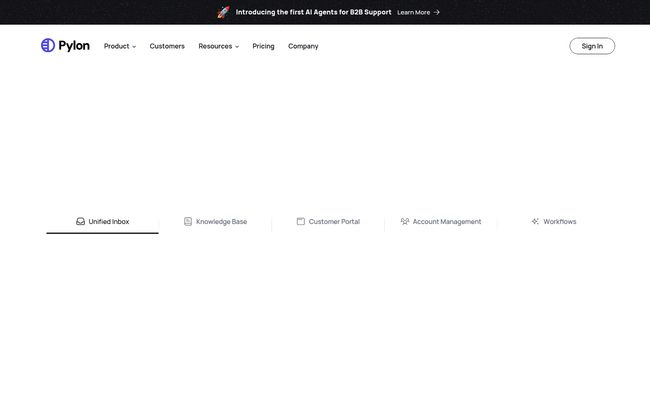
Visit Pylon
It's about understanding the entire customer relationship, not just solving one-off problems. That’s a philosophy that’s baked into its feature set, and it’s a refreshing change of pace.
The Features That Actually Move the Needle
A feature list is just a list. What matters is how those features solve actual, hair-pulling-out problems. Here’s what stood out to me.
Your Unified Inbox: The End of Context Switching?
This is the big one. Pylon pulls in conversations from everywhere: email, your website’s chat widget, dedicated Slack Connect channels, even community Slack mentions. It all lands in one inbox. Imagine not having to piece together a customer’s story from three different apps. It’s all just… there. This isn’t just a convenience; it's a fundamental workflow improvement. You're not just responding faster; you're responding smarter because you have the full picture.
It's the difference between being an archeologist, digging for clues in different sites, and being a historian with the entire library at your fingertips. For B2B teams where a single conversation can span email and a shared Slack channel, this unified view is less a feature and more of a necessity.
Let's Talk About the AI (Because We Have To)
You can't swing a cat in the tech world right now without hitting an “AI-powered” tool. Most of it is marketing fluff. Pylon’s approach, however, feels more practical and grounded.
They split their AI into two main categories: AI Agents and AI Assistants. The Agents are what you’d expect: automated bots that can handle common questions and resolve issues without human intervention. The Assistants, which I find far more interesting, are designed to help your human agents. Think of it as a super-powered sidekick. It can summarize a nightmarishly long ticket thread into a few bullet points, autofill ticket properties, or even help draft a reply or a full knowledge base article. This is teh smart way to use AI—not to replace your skilled team, but to augment them, freeing them from tedious work so they can focus on complex, high-value problems.
Empowering Customers with Knowledge Bases and Portals
Good support is about enabling self-service. Pylon provides tools to build out a public-facing help center and an internal-only knowledge base for your team. Standard stuff, but executed well.
The real gem here, though, is the Customer Portal. This gives your clients a dedicated space where they can log in and see the status of all their company's tickets. No more “Hey, any update on ticket #12345?” emails. They can see it all for themselves. This level of transparency builds incredible trust and makes your support operation feel professional and organized. It's a small thing that makes a huge difference in the customer experience.
So, How Much Does Pylon Cost?
Ah, the million-dollar question. Or, in this case, the $59-a-month question. Let's break down their pricing, which is pretty straightforward. They offer a yearly discount, but we'll stick to the monthly rates for comparison.
| Plan | Price per Seat/Month | Minimum Seats | Best For |
|---|---|---|---|
| Starter | $59 | 3 | Small teams getting started with a proper support system. |
| Professional | $89 | 3 | Growing teams that need more advanced features like Slack Connect and deeper integrations. |
| Enterprise | $139 | 7 | Larger organizations needing advanced security, compliance (like HIPAA), and premium support. |
A few things to note here. The minimum seat requirements are important. Pylon isn't really targeting solopreneurs or two-person startups. Also, many of the advanced AI features are add-ons, which is a common practice in SaaS. It allows you to pay for what you need. In my opinion, the pricing is competitive for the B2B space. When you consider that Pylon could potentially replace 2-3 other tools you're paying for, the value proposition becomes pretty clear.
Who is Pylon Really For? (And Who Should Probably Pass?)
No tool is perfect for everyone. Here’s my honest breakdown.
Pylon is likely a fantastic fit if you are:
- A B2B SaaS or technology company. The entire platform is built for your workflow.
- A support team that lives in Slack or Microsoft Teams. The native integrations are a core strength.
- A company focused on account management and building long-term customer relationships.
- Looking to consolidate your tech stack and reduce the number of tools your support team has to use.
You might want to look elsewhere if you are:
- A strictly B2C company. While you could use it, many of the account-centric features would be overkill.
- A very small team (1-2 people). The 3-seat minimum on the Starter plan might be a dealbreaker.
- On a shoestring budget looking for the cheapest possible solution. Pylon is priced as a premium, professional tool.
Some might argue that established players like Zendesk or Intercom are safer bets. And for some companies, they might be. But in my experience, a tool designed for a specific purpose almost always outperforms a general-purpose one. Pylon's relentless focus on the B2B use case is its greatest asset.
The Nitty-Gritty: Integrations and Security
A support platform doesn't live in a vacuum. Pylon seems to get this, offering a robust set of integrations with tools that B2B companies actually use: Salesforce for CRM, Jira for engineering, Datadog for alerting, and of course a full-fledged API and webhooks for custom workflows. Your support hub should talk to your product hub and your sales hub, and Pylon facilitates that.
On the security front, they're not messing around. They list compliance with SOC 2 Type II, GDPR, ISO 27001, and HIPAA. For anyone who's had to go through a security review with an enterprise client, you know how critical this is. It's not the sexiest feature, but it's a powerful signal that they are a serious, enterprise-ready platform.
So, What's the Verdict on Pylon?
After digging in, I’m genuinely impressed. Pylon isn't just another helpdesk with a fresh coat of paint. It’s a thoughtfully designed platform that addresses the specific, often-painful realities of modern B2B customer support. The emphasis on account-level views, the deep integration with collaborative tools like Slack, and the practical application of AI all point to a team that truly understands its target audience.
Is it the right tool for every single business on the planet? Of course not. But for the B2B company that feels like its support process is held together with duct tape and hope, Pylon could be the organized, powerful, and unified solution you’ve been looking for. It might just be the tool that lets you finally close a few of those tabs.
Frequently Asked Questions
- 1. What is Pylon in simple terms?
- Pylon is an all-in-one customer support platform designed specifically for B2B companies. It combines a ticketing system, chat, knowledge base, AI features, and a customer portal into a single, unified workspace.
- 2. Is Pylon a good choice for B2C companies?
- While it could work, Pylon is optimized for B2B workflows, with a strong focus on managing entire customer accounts rather than individual consumers. B2C companies might find that a different platform better suits their needs.
- 3. How does Pylon use AI?
- Pylon uses AI in two ways: AI Agents to automate responses to common questions, and AI Assistants to help human agents work faster by summarizing tickets, drafting replies, and generating content.
- 4. How does Pylon's pricing work?
- Pylon offers three main tiers (Starter, Professional, Enterprise) with per-seat, per-month pricing. There are minimum seat requirements for each plan, starting at 3 seats for the Starter plan.
- 5. What makes Pylon different from a tool like Zendesk?
- The primary differentiator is its B2B focus. Pylon is built around managing customer accounts, providing a holistic view of a company's entire support history, which is different from the ticket-centric approach of many traditional helpdesks.
- 6. Can I integrate Pylon with other tools like Jira or Salesforce?
- Yes, Pylon has a wide range of integrations with common business tools, including CRMs like Salesforce, project management tools like Jira, and alerting platforms, in addition to a full API for custom connections.
